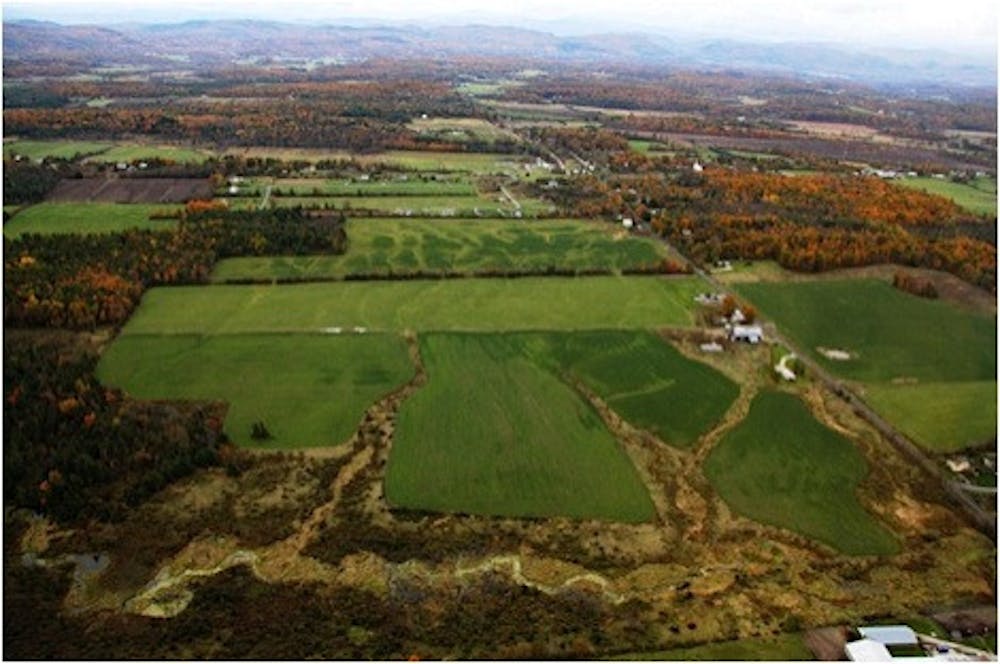Despite the immense benefits of solar energy — it can be used to generate electricity for domestic, commercial or industrial purposes — recent developments in the solar energy industry are a concern for many residents of Charlotte, Vt.
The Vermont Public Service Board (PSB) recently approved a request by Charlotte Solar to build a 2.2-megawatt solar array in a field on the north side of the Charlotte-Hinesburg Road in Charlotte, Vt.
Many Charlotte residents who live close to the field where the panels will be built are disappointed with the PSB’s decision. Elizabeth Bassett, Charlotte resident and homeowner of 25 years, is particularly upset by recent solar developments.
Bassett was one of six Charlotte residents who hired an attorney, William Ellis, to represent their case.
Bassett and her neighbors have spent a lot of money trying to prevent the solar array request from passing. She and others feel that the town “let them down” by passing the proposal.
Residents of Charlotte have lodged numerous complaints that the Public Service Board has managed the project poorly. At the first and only town meeting, Charlotte residents voiced their concerns to the Selectboard. After this occasion, no further public meetings were held. Bassett notes that the Selectboard was “non-communicative” and “never once had a discussion that wasn’t an executive meeting.”
Concerns about the solar array’s potential impact on home values are abundant.
“You can’t tell me that 14 acres of metal surrounded by a fence a few hundred feet away from a home isn’t going to decrease the house’s value,” said Bassett. Moreover, many residents voice concerns that the solar array will disrupt their “view shed.”
The Town of Charlotte hired David Raphael — owner of LandWorks, a firm that conducts aesthetic assessments — to review the proposal on behalf of the town.
“The project, with some specific mitigation measures implemented, and approval conditions with regard to siting, operation and decommissioning, satisfies the criteria and standards in place for aesthetics and land use,” said Raphael.
After reviewing available materials, critiquing layout, providing and addressing conformance with community standards, Raphael says that the project passes aesthetic standards.
While Raphael believes the PSB made the right decision given the circumstances of both the site and the proposal, he does not dismiss the neighbors’ worries. He remarks that there are justifiable concerns regarding placing a large-scale solar array in an agricultural open space; for example, fields no longer being available for agricultural use and industrial elements being incompatible in a rural agrarian landscape.
“The immediate neighbors are the most distressed by these types of projects, and they certainly have some basis for that — the look, feel and sense of place in a neighborhood can be altered by large scale energy projects such as this one,” said Raphael.
Residents who live close to the solar array are further peeved that the solar energy benefits an out-of-state corporation. The field where the panels will be installed is owned by the trust of Clark Hinsdale Jr., whose son is working with an out-of-state developer (Massachusetts-based American Capital Energy) to build the panels.
Indeed, according to Raphael, “the developers see a financial return from such a project.” With plenty of sunlight, the property is certainly ideal for such a project.
However, many who live close to the targeted field believe the Massachusetts corporation does not value Vermont’s beauty and the many generations it has taken to nurture the land.
“This is simply the wrong project, in the wrong place, at the wrong time,” said Bassett.
The question then becomes, what would be the “right” place for such a project?
Bassett suggested that solar panels should be installed above a parking lot, such as those that were installed above the parking lot of the Unitarian Universalist Church in Burlington in January 2012. The lack of consideration of such an idea exposes a real problem in the Vermont PSB system — out-of-state developer come in with plans and the PSB cannot make alternative suggestions, explained Bassett.
This plan will have an impact that spreads well beyond the town of Charlotte. Raphael noted that it will undoubtedly create a precedent for large-scale solar installations in rural agricultural settings and adjacent to residential neighborhoods.
“Unless the town changes its town plan and corresponding zoning, it does open the door for future installations of similar size and placement,” he said.
Bassett added that a lot of people are angry and scared — if a 14-acre industrial solar is installed in a field like this, there is no place that is safe.
Bassett noted that the energy and pollution problem is a global issue, and installing an enormous solar array in a small Vermont town isn’t the solution. Opposition to the solar development project, Bassett added, does not imply a lack of responsibility to clean up the environment and promote sustainable energy.
Charlotte Solar Panel Array Generates Controversy

Comments



